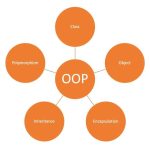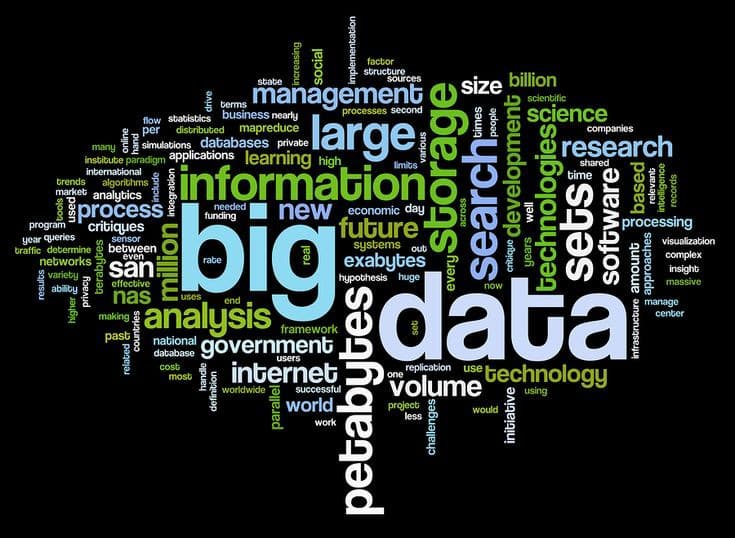It is no longer news that data technologies have evolved, and organisations are using them to grow their businesses. Large amounts of data are generated from customers daily, and many organisations have seen the need to use data for their businesses.
Recently, there has been a surge of professionals skilled in big data analytics in Nigeria. This surge has increased awareness for Nigerian companies to implement big data analytics, get market insights, and enforce business decisions. Find out in this article the meaning of Big Data Analytics, and how it applies to Nigerian businesses.
Table of Contents
What is Big Data Analytics?
Big Data Analytics is the complex process of examining hidden patterns and trends in large amounts of data to make data-driven decisions. In other words, it uses modern technologies and techniques to understand data.
Nigeria has a large population with a vast amount of data generated daily. This data is generated from social media posts, online surveys, online transactions, forms filled, healthcare systems, and data that describe people.
Let’s take an example, using social media to generate data. If there’s an Instagram user who loves sneakers, and you sell sneakers, data obtained from social media would help to channel your business and ads to the user who loves sneakers to make a purchase. This is a straightforward way to increase sales using big data analytics.
It involves methods of processing structured and unstructured data. Structured data refers to customers’ names, addresses, and geographical locations, as in an Excel sheet. Unstructured data refers to raw data with no relationship.
Let’s have a case study of a bag manufacturing company. Within a month of sales, the business lost 50 customers. Big data analytics answers the questions of “Why did it happen, Will it happen again?, What will happen if we change our mode of sales?”. If, within another month, there was an increase in sales and new customers, analytics also answers the question, “What did we do that caused the increase in sales?”
Big Data Analytics is an advanced analytics technique to analyse data and forecast market trends. It is founded on the 5Vs of big data; velocity, volume, value, variety, and veracity (accuracy).
Maximising the use of big data analytics for Nigerian businesses is necessary to thrive. Big data analytics uses predictive, prescriptive and descriptive analysis to make business decisions.
Read also: A Beginner’s Guide to Database Management System.
Types of Big Data Analytics
-
Descriptive analytics
Descriptive analytics is a branch of big data analytics that shows a report of historical data. This is a widely sought-after type of analytics. Descriptive analytics makes use of big data analytics and business intelligence tools. These tools describe and show sales, market trends and customer demographics.
Descriptive analytics uses data visualisation tools like Power BI to show business leaders in Nigeria how data can improve their businesses. Descriptive analytics is essential to any industry in Nigeria and can be applied in any enterprise by skilled data professionals.
-
Predictive analytics
Predictive analytics is a branch of big data analytics used to make future predictions with accurate and reliable insights. Predictive analytics uses historical or present data to forecast future events. This can help Nigerian brands to identify risks and make decisions.
Predictive analytics is simply foresight. Foresight to see a rise in business or a fall in business sales. Netflix, a streaming app present in Nigeria, uses predictive analysis to grow their business. They use past data of movies watched and suggest movies for users to watch.
Also, there was a forecast that Netflix would lose subscribers due to company policy changes. Netflix improved its products and marketing strategy to cushion the effect. This predictive analysis has helped retain their subscribers and gain more than the losses.
-
Prescriptive analytics
Prescriptive analytics goes beyond forecasting future predictions. Instead, it provides actions and steps to get the desired results. Prescriptive analytics is a step further than predictive analysis. However, it is not really in use.
A pure water factory in Nigeria predicts that the cost of operations will increase in a few months based on the economic downturn. Prescriptive analysis will then provide solutions to ensure the business does not run at a loss and that revenue is generated despite an increase in the cost of operations.
The solutions can answer these questions, “How do we increase sales to cover the expenses?, How do we expand the business to reach more people?, Should we increase awareness within the location?” Prescriptive analysis can be applied in Nigeria’s health sector and manufacturing companies.
The Process of Big Data Analytics
Data professionals like analysts, scientists, and engineers use big data analytics tools to improve business decisions and sales. There are four processes in big data analytics. It involves collecting, processing, cleaning, and analysing data to help organisations use their data.
-
Collect data
Data collection differs for organisations. The invention of new technologies has given organisations the ability to gather structured and unstructured data from different sources. Different organisations use various sources to collect data.
These sources include mobile applications, internet data, weblogs, cookies from websites, social media content, survey responses, internet data and phone records, and the Internet of Things (IoT).
-
Prepare and process data
Once data is collected and stored in a data warehouse or data lake, data professionals are required to manage the data. This is necessary for unstructured data. Preparing, processing and organising the data provides accurate results.
-
Clean data
After the preparation of data, data is cleaned for accuracy. Cleaning the data helps to improve the data quality. Duplication of data and errors are deleted.
-
Analyse data
Data professionals analyse the data using analytical software. This process makes the data understandable.
Read also: What is Data Science? All You Need to Know.
Advantages of Big Data Analytics for Nigerian Businesses
Big data analytics has numerous benefits for Nigerian businesses to drive growth and sales. They include;
-
Provides insights on customers
Big data analytics provides insights into customers’ evolving preferences when an analysis is performed on historical and real-time data to get more information on the customer. Data can provide the age range and geographical location of customers. This would help businesses to be responsive to customer wants and needs. Understanding customers’ wants and needs would increase customer satisfaction.
-
Enhances business decisions
Big data analytics tools show the market trends and market value of products and opportunities. The information provided would drive and enhance business decisions. Data analysed would give insights and suggestions on sales, launching new products or entering new markets.
-
Customer retention and acquisition
Big data analytics identifies pain points and what satisfies customers. Customers can provide a survey or feedback. The data received would help to understand the customer’s perception of the business. Business decisions would be implemented to retain customers and get new customers to patronise the business.
Read also: How to Leverage Customer Feedback in Your Business.
-
Forecasting of market trends and price determination
Forecasting of market trends is made easy with big data analytics. The market trend is the general direction of products, services, assets, and market prices over time. It enhances the market price and price optimisation for the business to grow within the economy.
Read also: 7 Biggest Trends in Entrepreneurship.
-
Targeted advertisement
Customer insights and preference determines and influences adverts. Advertisements are targeted to increase customer awareness of the products and attract new customers. The insights from the data analysed help businesses know what platform to run ads and the content of the ads.
Using the example of the sneakers, the insights show that the age range of the customers is between 15-45. The data captures that these customers are on popular social media platforms. Instead of running ads in a magazine, the business will run adverts on social media platforms like Twitter, Instagram and YouTube.
-
Competitive edge
Businesses that use big data analytics have an edge over competitors. Understanding trends, retaining customers and increasing customer satisfaction is an advantage.
-
Improved operations
Enhanced business decisions would improve and optimise operations within the business making operations efficient for customers’ needs. For example, a food company that sells and delivers food within Lagos uses big data analytics to get feedback. The feedback showed customers’ pain points which were late deliveries of food. This data will help the business assess its operations in delivering food and make a decision that suits the customer’s needs.
Real-life Applications in Nigeria
-
Jumia group
Jumia group is an e-commerce platform in many African countries, including Nigeria. Jumia is famous for sales and deliveries of food, gadgets, accessories, and products. Jumia has harnessed the power of big data in e-commerce.
Jumia set up a tech team for big data analytics to run data projects. These data projects resulted in improved and precise delivery times, tailored product recommendations, running adverts and refined algorithms that determine price. This led to increased awareness of the group in Nigeria, customer satisfaction and business growth.
-
Airtel
Airtel is one of the leading telecommunications companies in Nigeria. Airtel Nigeria uses big data analytics to discover customers’ wants and needs, improve network performance and increase customer use of Airtel’s network. In the second quarter of 2023, Airtel revealed that their revenue grew by 23%. It was observed that the continued rollout of the 4G network increased their customer base, which in turn generated more revenue.
-
Guaranty-Trust Bank
Guaranty-Trust Bank (GTBank) is a leading financial and banking institution in Nigeria. GTBank embraced and implemented big data analytics for their business. Their vision is to provide a seamless and easy banking experience for Nigerians. The insights analysed made them innovate digital banking services for customers to conveniently perform transactions.
This reduced customer waiting time and reduced queues at the branches. GTBank uses data analytics on a large scale. It is also used to determine patterns that help in fraud detection. The return on Investment (ROI) significantly increased by using analytics.
Challenges of Using Big Data Analytics
There are challenges in using big data analytics, and some of them include;
-
Data privacy and security
Big data analytics can collect and store sensitive data. This is a concern for the privacy and security of users and customers.
-
Finding the right tools
Finding the right tools can be a challenge for a business. Big data analytics tools keep evolving and can be complex. Changes and updates made to these tools and catching up with the technology can pose a challenge.
-
Maintenance of quality data
Big data involves voluminous data. Maintaining the data and ensuring it is accurate and in the best quality to be used makes the results unreliable. It takes effort and resources to maintain data.
-
Cost
The cost of using software and infrastructure can be expensive to maintain. This makes implementing big data analytics challenging for small and medium enterprises.
Best Practices in Using Big Data Analytics
These best practices can be applied to big data analytics in addressing the challenges.
-
Start small
Find a problem to solve using data analytics. Start small and implement the insights. Do not try to take on large projects at once. Have a budget to spend on data analytics.
-
Hire a professional
The surge of tech skills has increased the number of data professionals in Nigeria. There are many skilled data professionals and data companies that can help you use your data to improve your business. Hire data professionals who can provide a comprehensive guide on building a business using customer data.
-
Use the right big data analytics tools
Big Data analytics tools like Microsoft Power BI, Microsoft Fabric, Tableau, Hadoop, Spark, Excel, and Python are efficient tools for analysing data. These tools can be used to analyse and visualise big data. Data professionals in Nigeria are skilled and trained to use these data tools to enhance business growth.
-
Data governance
Big data is a vast amount of data, both structured and unstructured. As the data increases, managing, controlling, and governing the data is challenging. This makes handling the volume, value and velocity of data more complex. Inaccuracy in data governance can lead to wrong business decisions and data overload. Data governance by businesses and data professionals solves the problem of maintaining voluminous data.
Conclusion
Leveraging Big Data analytics for your business is a smart way to expand your business. Big data analytics can be implemented across healthcare, finance, transportation, government services, retail, agriculture, and telecommunication industries. It is not limited to large enterprises but can be applied to small and medium enterprises to expand businesses.
Big data Analytics is becoming more popular in Nigeria, and it plays a pivotal role in improving businesses and Nigeria’s economy. Nigerian companies can thrive, compete, stand out and be innovative locally and globally by harnessing the power of data.
Oluwanifemi Akintomide edited this article.
What do you think of Big data analytics? Let’s know your thoughts in the comment section, or speak to us on Whatsapp. Subscribe to our newsletter to receive notifications of other valuable posts like this.
About Author
-
Hi. I'm Temitope Victoria, a technical writer with a strong foundation in computer science.
I'm passionate about writing engaging articles that enlightens readers on latest technologies.
My interests span across women, technology and lifestyle and entrepreneurship.
Latest entries
 TechnologyDecember 13, 2023A Beginner’s Guide to Object-Oriented Programming
TechnologyDecember 13, 2023A Beginner’s Guide to Object-Oriented Programming TechnologyNovember 22, 2023Who is a Network Engineer, and How Do You Become One?
TechnologyNovember 22, 2023Who is a Network Engineer, and How Do You Become One? Business InsightsNovember 7, 202310 Top and Emerging Delivery Companies in Nigeria
Business InsightsNovember 7, 202310 Top and Emerging Delivery Companies in Nigeria

